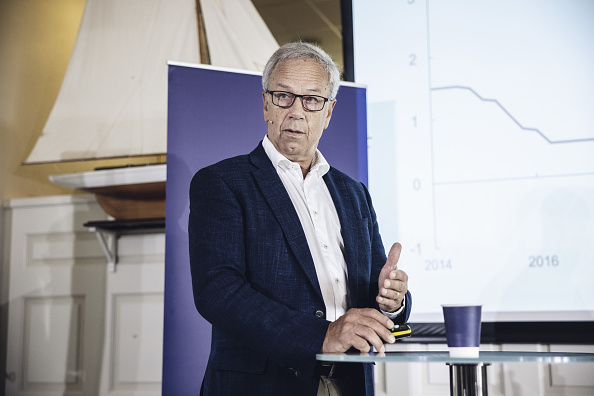Focus on sovereign bond rates, in particular of BTP, Bund, Gilt e Treasuries, which point decisively upwards.
In particular, according to an article by Reuters, 10-year Bund rates reported in yesterday’s session the strongest rise since last February.
The leap was following the decision by the central bank of Norway Norges Bank to raise interest rates, thus confirming itself as the first Western central bank, among the main ones, to normalize the cost of money. in the post-pandemic Covid-19.
Also yesterday, the Bank of England he said the assumptions that would endorse higher interest rates “appear to have strengthened.”
Even earlier, despite the still postponed tapering announcement, the Federal Reserve of Jerome Powell issued a dot plot which showed that, by the end of 2024, the exponents of the FOMC – the monetary policy arm of the Fed – predict that fed funds rates they will be raised up to seven times.
Also increased in the Fomc the hawks who estimate a tightening as early as next year.
The week that is drawing to a close certainly saw central banks as protagonists, as ING analysts pointed out in a note to customers. And what has emerged is that the monetary authorities “They are ready to withdraw the monetary stimulus measures launched during the pandemic”.
The prospect of tighter monetary policy in different geographic areas of the world has led investors to sell off i bond governativi. The result was the increase in yields, which we are witnessing in these hours.
Ten-year German Bund rates have risen up to -0.23%, to the record since last July 6.
Ten-year BTP rates jumped up to 0.7765%, at the latest since July 9th.
British Gilts counterparts continued to aim higher, climbing up to 0.9555%, at the highest value since March 2020. At the record since March 2020, the month in which much of the world woke up with the horror of the pandemic, also UK two and 5 year rates.
In the past few hours, 10-year Treasury rates have crossed the 1.4% threshold for the first time since mid-July.
Regarding the United Kingdom, interviewed by Bloomberg, John Wraith, head of the European and UK rates strategy division, commented on yesterday’s meeting of the Bank of England’s Monetary Policy Commission, recalling that, “historically, it is the Fed that leads the global policy cycle “.
Said this, “it is not written in stone that (the United States) should be first and then all the others follow. It is easily likely that the BoE will be the first to raise rates this time, whether on a voluntary basis or forced by market levels ”.
In fact, the BoE has left the door to the possibility of raise rates as early as November.
Overall, money markets have shifted their projections forward, and are now betting on a 15 basis point UK rate hike at the February meeting, followed by a further quarter percentage point hike in August.
Tornando alla Norges Bank, the central bank of Norway yesterday, Thursday 23 September, became the first central bank among the most important in the Western world to raise rates in the post-pandemic.
After having cut rates three times in 2020, the institution unanimously decided to raise rates to 0.25% from zero.
“The normalization of the economy now suggests that it is appropriate to start initiating a gradual normalization of rates,” the governor said. Oystein Olsen, based on what emerges from the press release. The bank also said it thought another rate hike likely in December.
The Norwegian krone immediately rallied strongly, leaping to the euro record since last June.
On the other hand, according to the weakness of the euro, the impression is that the ECB of Christine Lagarde remained alone in pursuing a monetary policy destined to remain very accommodative for a long time to come, as evidenced by the announcement on tapering dovish.
An announcement that, among other things, Lagarde did not even want to define tapering.
